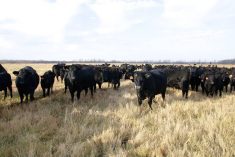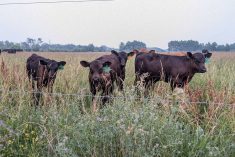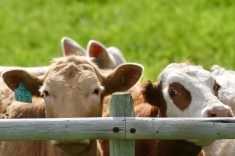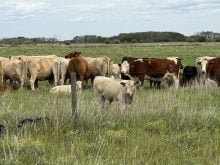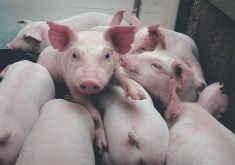HANNA, Alta. – After a year as Alberta’s agriculture minister there are still lots of jobs on Walter Paszkowski’s list.
His department has cut costs, realigned staff and is looking at ways of streamlining regulations. The next challenge is to convince other governments a massive change for agriculture is the best and only way to revitalize the industry.
“We’ve made a lot of changes similar to all the other departments in the (provincial) government and I think as far as change is concerned the approach we’re taking is the only achievable approach,” he said during a farmer meeting at Hanna in east-central Alberta.
Read Also
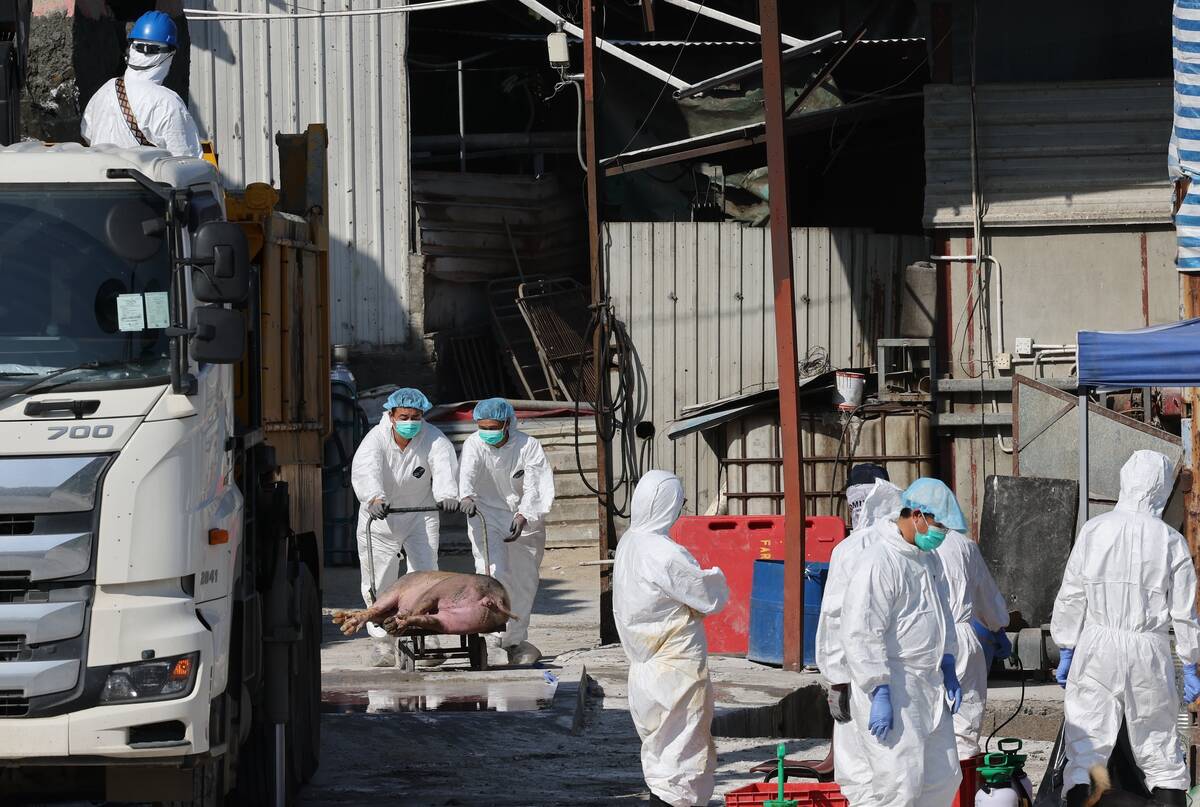
Mixed results on new African swine fever vaccine
The new African swine fever vaccine still has issues, but also gave researchers insight into how virus strain impacts protection against the deadly pig disease.
“We have to make all the changes at one time.” Piecemeal reforms are doomed, he said.
Paszkowski has been travelling the province attending producer meetings, asking farmers how they want transportation issues, trade disputes and farm diversification handled in the future.
So far, producers’ comments at these open meetings have been surprisingly consistent. They want fewer regulations in their lives, an easy-to-manage safety net program and a massive overhaul of grain transportation and marketing regulations.
Tough road ahead
As a booster of safety-net reform and wheat board restructuring, Paszkowski may be facing a tough sell at the agriculture ministers’ meeting next month in Winnipeg when he unveils the Alberta position.
With the help of an inter-commodity group, four versions of a farm safety net have been devised ranging from a “bare bones” package to NISA-type programs to a new concept called “GATT 70.”
During the producer meetings some farmers told him to abolish safety nets. Others have suggested designing a program to deal with disasters.
Paszkowski said he’s suggesting a little more than that.
“I want a disaster program, but I also want a program that’s going to look after the needs of beginning farmers.”
“If we can’t cover the both of them I don’t think we have an adequate program.”
Clearing barriers to allow farmers to do business easier is another Paszkowski vision.
“We are in a very strong need at the present time for deregulation … unless we deregulate the process we’re not going to be able to pick up the opportunities that GATT and NAFTA have allowed us to.”
Destroy the industry
He worries if agriculture doesn’t agree to regulatory reform immediately the industry will be destroyed. That reform includes rewriting the wheat board’s mandate to open the North American market, while leaving the board to handle other exports.
“We allow our producers to produce and they’re as good as anyone in the world. But when it comes to marketing we suddenly restrict them … and don’t allow them to participate.
“I’m not an advocate of getting rid of the wheat board, but on the other hand if we don’t restructure it, it’s going to kill us.”
He wants that reform within a year, before outside forces demand change.
“I’m concerned and I’m excited about agriculture. I really think if we can make the changes that are necessary we could take this back to the dominant industry that it once was, just with (these) changes.”




